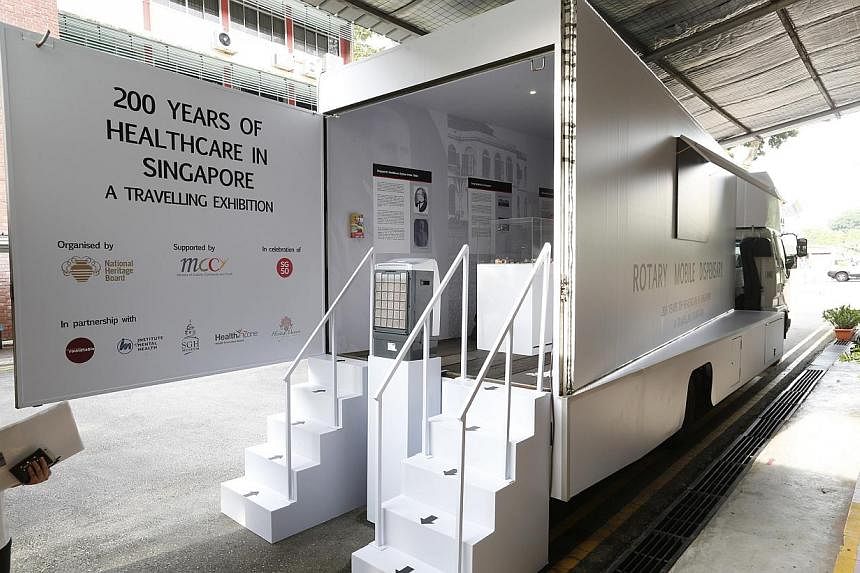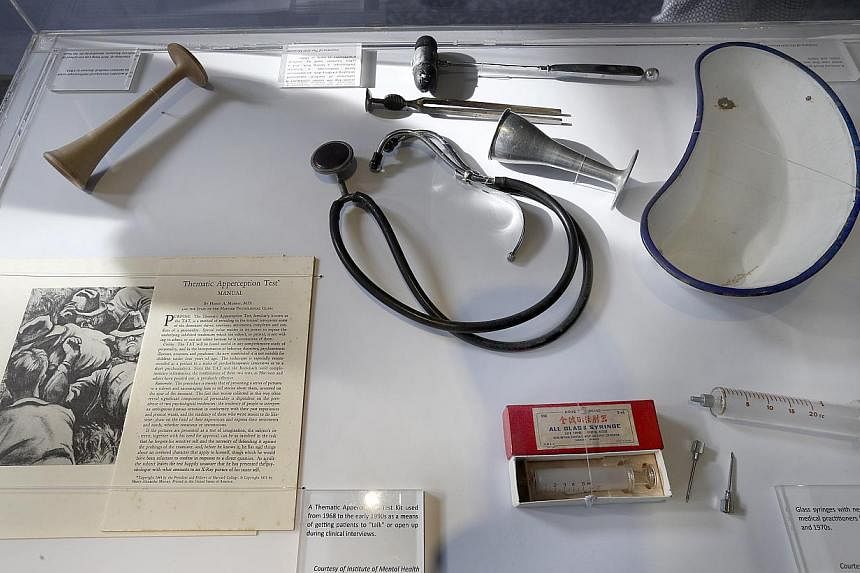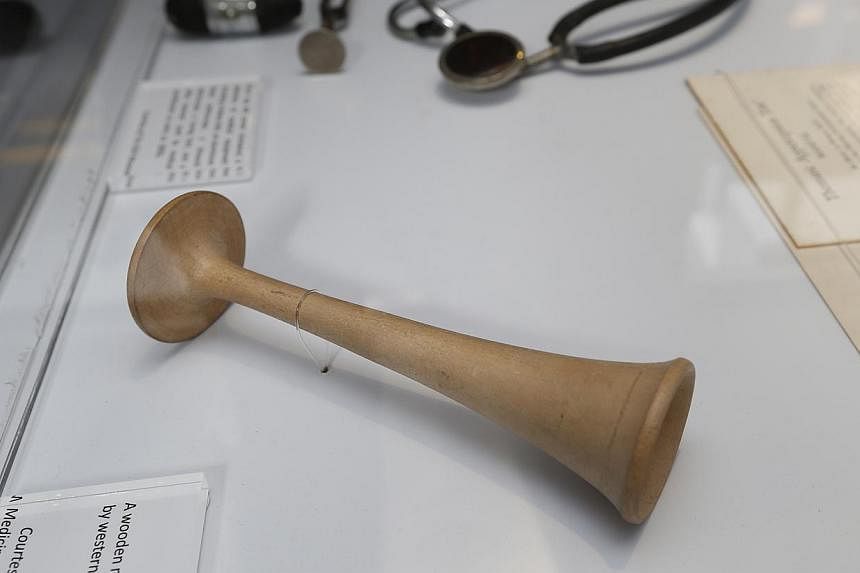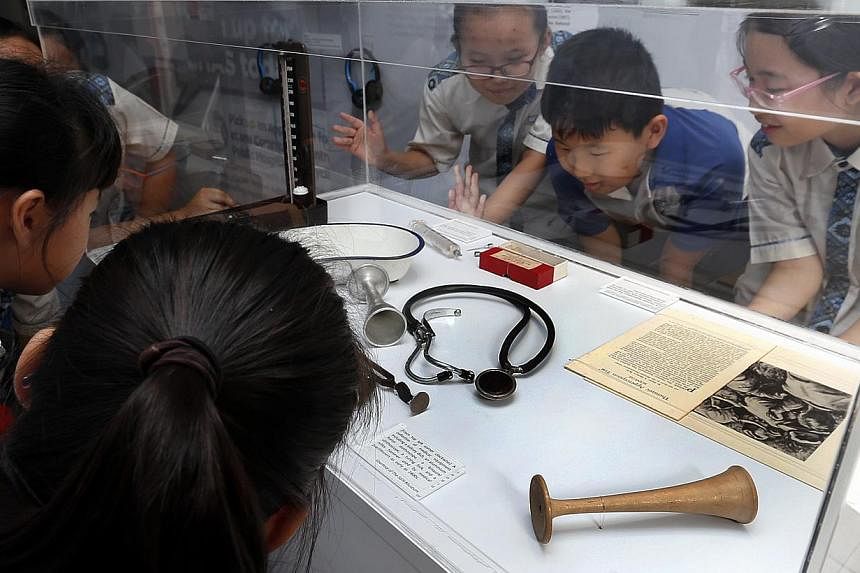Infectious diseases like smallpox and tuberculosis were merciless killers here in the 19th century.
And home remedies and traditional treatments from shamans and sinsehs did little for the dizzying mortality rate that plagued Singapore in the 1800s and early 1900s.
Western medical practice, which arrived here in 1819, helped alleviate the situation somewhat.
In 1868, for instance, the British authorities mandated smallpox vaccinations. Laws on quarantine and the registration of births and deaths were also introduced.
This snippet from Singapore's early years is chronicled in a roving exhibition housed in a truck - a nod to the mobile dispensaries rolled out by the colonial government in the 1950s.
The truck carries a showcase of medical milestones in Singapore over the past 200 years. These include the establishment of the Singapore General Hospital in 1821 and the birth of Asia's first test-tube baby at Kandang Kerbau Hospital in 1983.
It also has artefacts on display, including a wooden monoaural stethoscope used by Western medical doctors in 1911; a mercury blood pressure monitor from the 1900s; and glass syringes with needles from the 1960s and 1970s.
Launched at South View Primary School in Choa Chu Kang yesterday, the truck will travel to 20 schools, public hospitals and other community venues till March.
It was put together by the National Heritage Board and the Museum Roundtable, a collective of public and private museums.
Health Minister Gan Kim Yong, who is MP for Chua Chu Kang GRC and officiated at the event, said it is important to take stock of "how we got to where we are today".
"I am pleased to note that the exhibition showcases the contributions of our pioneer health-care institutions, personalities and campaigns towards the building of a healthy nation."
Industry pioneers should also be recognised, Mr Gan added.
South View Primary pupil Reiner Goh, 11, who is in Primary 6, said he found the exhibition interesting. "It showed how our health-care system has improved from British times," he said.
Mr Ivan Ng, 39, who teaches character and citizenship education at the school, said the showcase will add to pupils' understanding of health care at the national level.
"Information like the Stop At Two policy and the free milk programme for needy students piqued their interest," he said.








